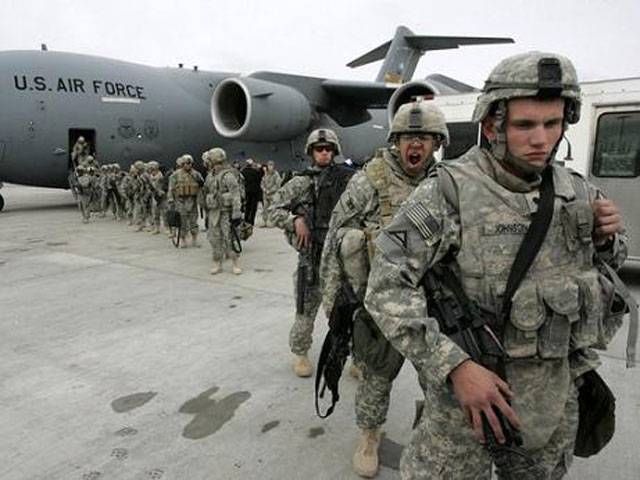NEW YORK - The US military has decided to take no action against any of its soldiers involved in a US-led NATO airstrike in November that killed 24 Pakistani troops, a leading American newspaper reported Sunday.
Diplomats said the decision, which was reported by The New York Times, was a serious blow to the intense efforts being made to reset the badly strained US-Pakistan relations.
The news could not have come at a worse time: The parliament is due to resume on Monday (today) its debate on a major review of relations with the United States. As part of that debate, Pakistani legislators have demanded an unconditional formal apology from the US for the fatal airstrike.
The Times said an American investigation in December found fault with both American and Pakistani troops for the deadly exchange of fire, but claimed that the Pakistanis fired first from two border posts that were not on coalition maps, and that they kept firing even after the Americans tried to warn them that they were shooting at allied troops.
Pakistan has rejected these conclusions and ascribed most of the blame to the American forces. The newspaper quoting three senior military officials said a second inquiry to determine whether any American military personnel should be punished said “no”, explaining that the Americans fired in self-defence. Other mistakes that contributed to the fatal cross-border strike were the regrettable result of battlefield confusion, they said.
“We found nothing criminally negligent on the part of any individual in our investigations of the incident,” one senior American military official involved in the process was quoted as saying on the basis of anonymity because the results of the review had not been made public.“The military’s decision is expected to anger Pakistani officials at a time when the two countries are gingerly trying to patch up a security relationship left in tatters over the past year from a series of episodes, including the shooting of two Pakistanis in Lahore by a CIA contractor, the Navy SEALs raid in Abbottabad that killed Osama bin Laden and the deadly airstrike in November,” the Times acknowledged.
In the highest-level meeting of leaders of the two countries since the accident, President Barack Obama is to meet with Pakistan’s prime minister, Yousuf Raza Gilani, on Tuesday in Seoul, South Korea, after a nuclear security summit meeting there, to discuss Afghanistan and other security issues. But President Obama is not expected to go beyond the regrets he conveyed to Pakistan soon after the airstrike on Nov 25.
Some administration aides said at the time that they worried that if Obama formally apologised to Pakistan, it could provide ammunition for his Republican opponents in the presidential race.
By contrast, Mr Obama offered a personal apology last month to President Hamid Karzai of Afghanistan for the burning of the copies of Holy Quran by American soldiers there, as well as regrets about the massacre of Afghan civilians in which an Army staff sergeant has been charged.
Gen James N Mattis, the head of the military’s Central Command, is scheduled to hold long-delayed meetings this week in Islamabad with Gen Ashfaq Parvez Kayani, the Pakistan Chief of Army Staff, to discuss the airstrike investigation, as well as new border coordination procedures to prevent a recurrence of the episode.
General Mattis will also discuss opportunities for training, arms sales and improving border coordination centres, military officials said. Other senior American officials, like Deputy Secretary of State Thomas Nides, and Marc Grossman, the State Department’s special representative for Afghanistan and Pakistan, are also expected to meet soon with senior Pakistani officials to begin mending relations.
Saturday, April 20, 2024
US won’t punish soldiers over Salala attack

Tehran to Rafah
April 20, 2024
A New Leaf
April 20, 2024
Cartoon
April 20, 2024
BJP’s Ripple Effect on South Asia
April 20, 2024
Time for Tough Decisions
April 20, 2024
A Tense Neighbourhood
April 19, 2024
Dubai Underwater
April 19, 2024
X Debate Continues
April 19, 2024
Hepatitis Challenge
April 18, 2024
IMF Predictions
April 18, 2024
Kite tragedy
April 19, 2024
Discipline dilemma
April 19, 2024
Urgent plea
April 19, 2024
Justice denied
April 18, 2024
AI dilemmas unveiled
April 18, 2024
ePaper - Nawaiwaqt
Advertisement
Nawaiwaqt Group | Copyright © 2024





